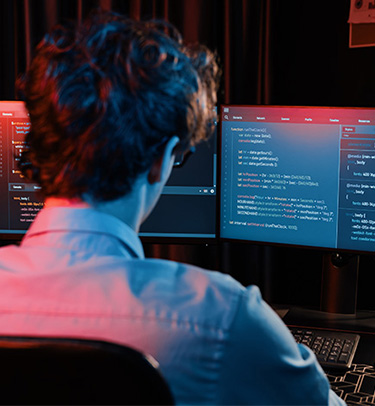“There was this horrible moment where I realised there was absolutely nothing at all that I could do,” said Amy Pascal, former chairperson of Sony Pictures, when she woke up one morning and found Sony Pictures on the news as the victim of a major cyberattack.
As there has been an increasing risk of cyberattacks worldwide in the past decade, companies and institutions need to constantly work to protect themselves with effective cyber security measures.
There is also a rising need to train professionals in cyber security. With a projected global spending of USD1 trillion on cyber security from 2017 to 2021, cyber security is a very attractive field for prospective students, recent graduates and job seekers looking to make a career switch. Here are 10 careers you need to know if you are considering to work as a cyber security professional.
- Security Consultant
Security consultants detect and prevent cyberthreats. Their responsibility includes designing and implementing the strongest possible security solutions based on the needs and threats faced by a business. They also manage the networks, update security systems and perform vulnerability tests and risk analyses as and when needed.
- Computer Forensics Analyst
Computer forensics analysts’ focus is on cybercrime. They work together with law enforcement agencies to conduct security incident investigations by accessing and analysing evidence from computers, networks and data storage devices. They may also help to recover deleted files, interpret data linked to crime, compile evidence for legal cases and advise the police on the credibility of the data. These roles are often required in large corporations, such as legal firms, law enforcement agencies, private consulting companies, and government or government-related organisations.
- Chief Information Security Officer
The chief information security officer leads all the security initiatives in an organisation and enforces what it needs to do to avoid cyberattacks. This role involves working directly with the management, managing a team of security professionals and creating a strategic plan for the deployment of information security technologies. Other tasks may include the development of corporate security policies.
- Security Engineer
Security engineers are professionals who build and maintain IT security solutions for an organisation’s systems and projects. They also handle technical problems, test security programs, install firewall systems, perform vulnerability tests and develop automation scripts to track incidents.
- Incident Responder
Incident responders are in charge of addressing security threats and incidents in an organisation. Using a variety of forensics tools, they attempt to find the root cause of a problem, and have to contain its spread and prevent it from happening again. They need to actively identify security vulnerabilities, monitor computer systems and networks for any signs of cyberattacks, and set up protocols for communications within the company and with the police during a security breach.
- Security Software Developer
Security software developers build and integrate security software and applications for an organisation. They may also oversee a team of junior software developers who help to create software tools, develop a software security strategy, perform vulnerability tests and support software deployments to customers.
- Penetration Tester
Penetration testers, also known as ethical hackers, are responsible for legally hacking into a company’s applications, networks and systems. Their purpose is to discover any vulnerabilities, service and application problems or improper configurations and patch them up before an intruder causes real damage. Their main duties also include checking for security loopholes and conducting physical security assessments of servers, systems and networks.
- Security Architect
Security architects design, build and oversee the implementation of complex network and computer security frameworks and systems for an organisation to counter hacking, malware and dedicated denial-of-service (DDoS) attacks. They plan, research and design strong security assessments, respond to security incidents and develop requirements for network systems, routers and firewalls. If you are interested in problem solving and creating top-down strategies, this could be the career for you.
- Security Auditor
Security auditors are responsible for checking the safety and effectiveness of an organisation’s computer systems and networks. They report the health of the overall system and suggest whether there are any changes or improvements that can be implemented. They also plan, execute and lead security audits across a company and evaluate the efficiency and compliance of operational processes and regulations.
- Security Systems Administrator
Security systems administrators are in charge of the entire computer, network and data security systems. They are usually responsible for the day-to-day operations of these security systems, which include monitoring the systems, running regular backups and setting up or maintaining individual user accounts.
Conclusion
The global market for Singapore's cyber security sector is set to increase at around 9.3% annually from 2015 to around SGD900 million by 2020, according to Info-communications Media Development Authority (IMDA). Due to more sophisticated cyberthreats taking place, an estimated 3,400 cyber security professionals in Singapore are expected to be in demand by then. So whether you are in the midst of changing your job, looking to levelling up your skills, moving to a new role, or even considering a new course of study in cyber security, there has never been a better time to consider a cyber security career.
References
‘Ten Quotes To Get Your Boss To Take IT Security Seriously’, JumpCloud,
https://jumpcloud.com/blog/boss-it-security-quotes/ by Nick Scheidies (Feb 14, 2019)
‘Ex-Sony Head Amy Pascal Discusses ‘Horrible’ Cyber Attack’, BBC, https://www.bbc.com/news/entertainment-arts-31434419 (Feb 12, 2015)
‘Sony Pictures Hackers Linked to Breaches in China, India, Japan: Report’, Reuters, https://www.reuters.com/article/us-sony-cyber/sony-pictures-hackers-linked-to-breaches-in-china-india-japan-report-idUSKCN0VX1IR, by Joseph Menn (Feb 24, 2016)
‘Mitigating the Cybersecurity Skills Shortage Top Insights and Actions from Cisco Security Advisory Services’, Cisco, https://www.cisco.com/c/dam/en/us/products/collateral/security/cybersecurity-talent.pdf (2015)
‘Cyber Security Jobs In Singapore’, Infocomm Media Development Authority (IMDA), https://www.imda.gov.sg/imtalent/guidance/success-stories/cybersecurity-sector
‘Cyber Security – Technology and R&D Roadmaps’, https://www.imda.gov.sg/-/media/Imda/Files/Industry-Development/Infrastructure/Technology/Technology-Roadmap/Cyber-Security.pdf
‘Data Scientists, Cyber-Security Specialists Among Top Emerging Jobs in Singapore: LinkedIn Report’, Todayonline, https://www.todayonline.com/singapore/data-scientists-cyber-security-specialists-among-top-emerging-jobs-spore-linkedin-report by Kenneth Cheng (Sep 6, 2018)
‘Cybersecurity Ventures Projects $1 Trillion Will Be Spent Globally on Cybersecurity from 2017 to 2021,’ CyberDefense Magazine, https://www.cyberdefensemagazine.com/cybersecurity-ventures-projects-1-trillion-will-be-spent-globally-on-cybersecurity-from-2017-to-2021/




 TOP
TOP



